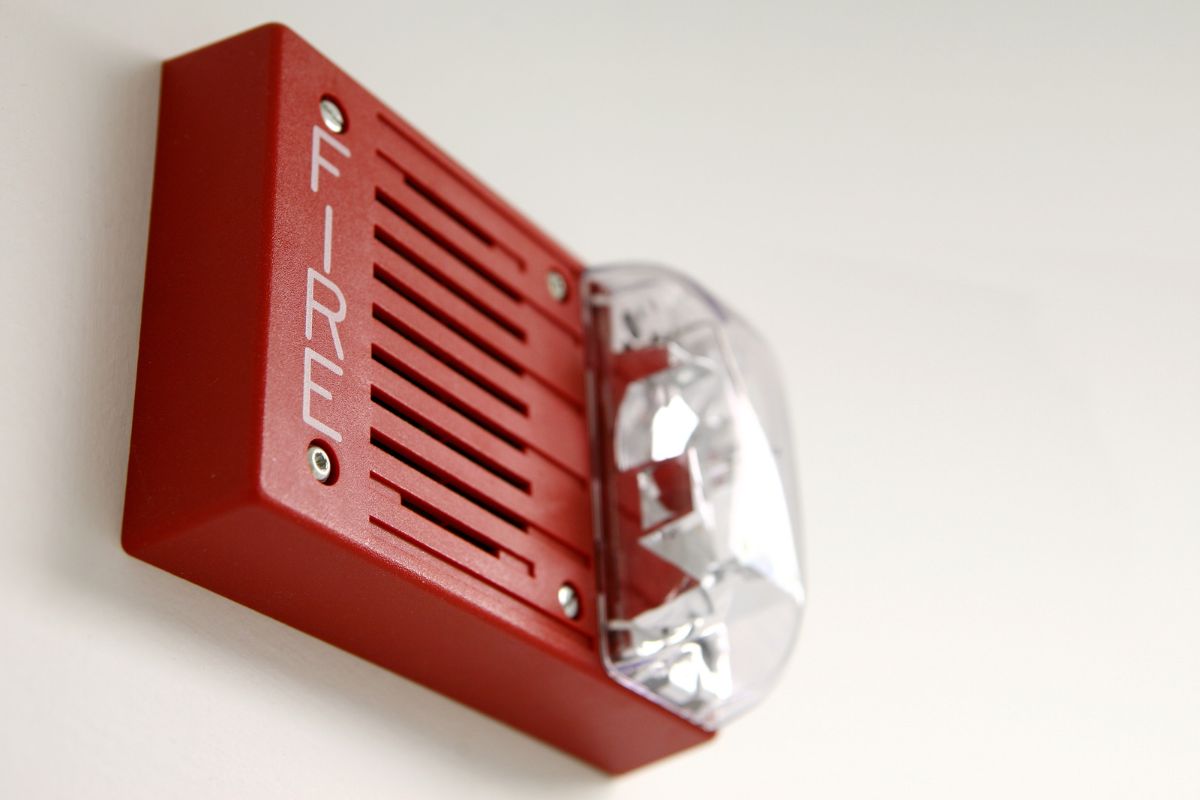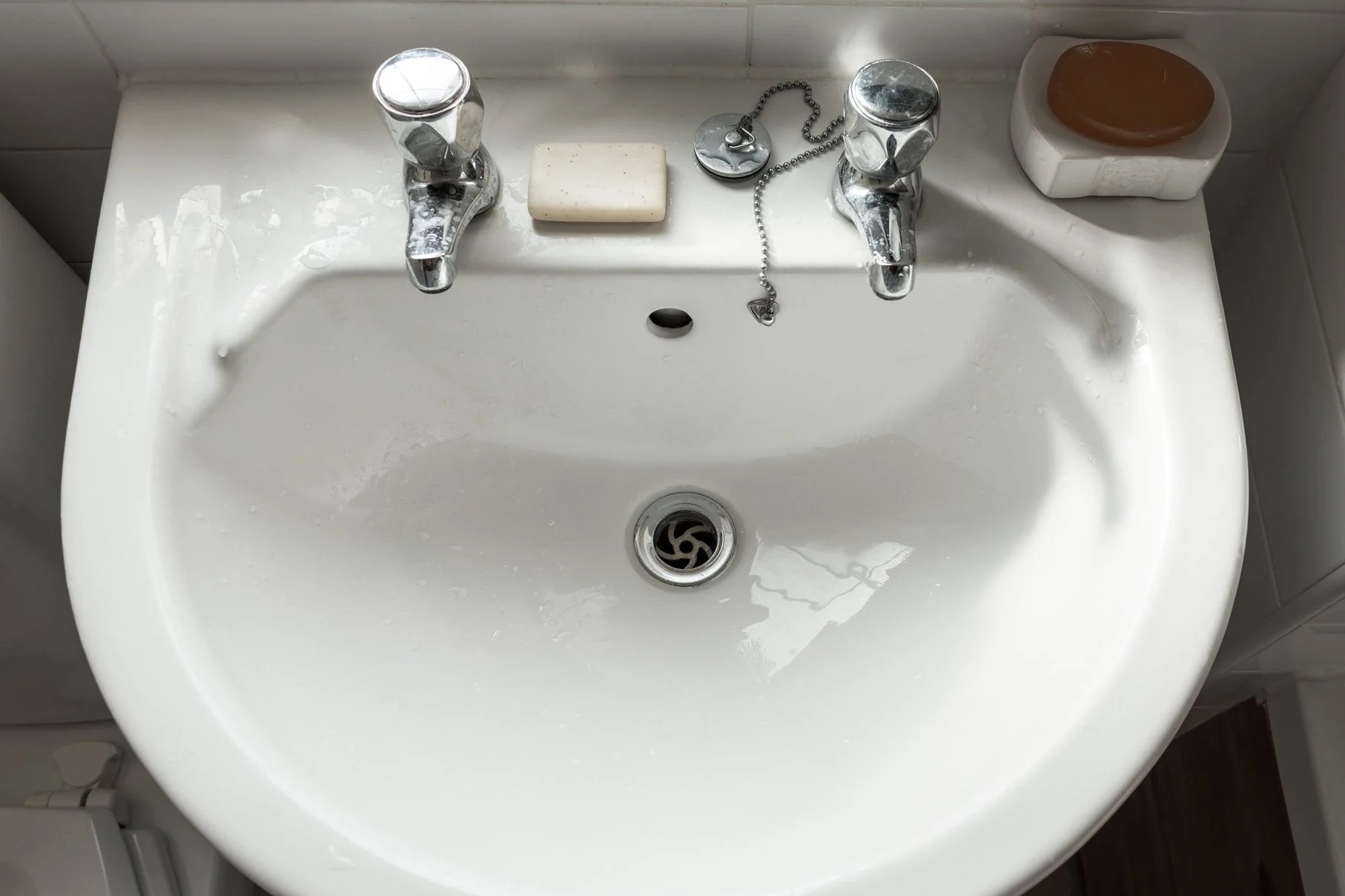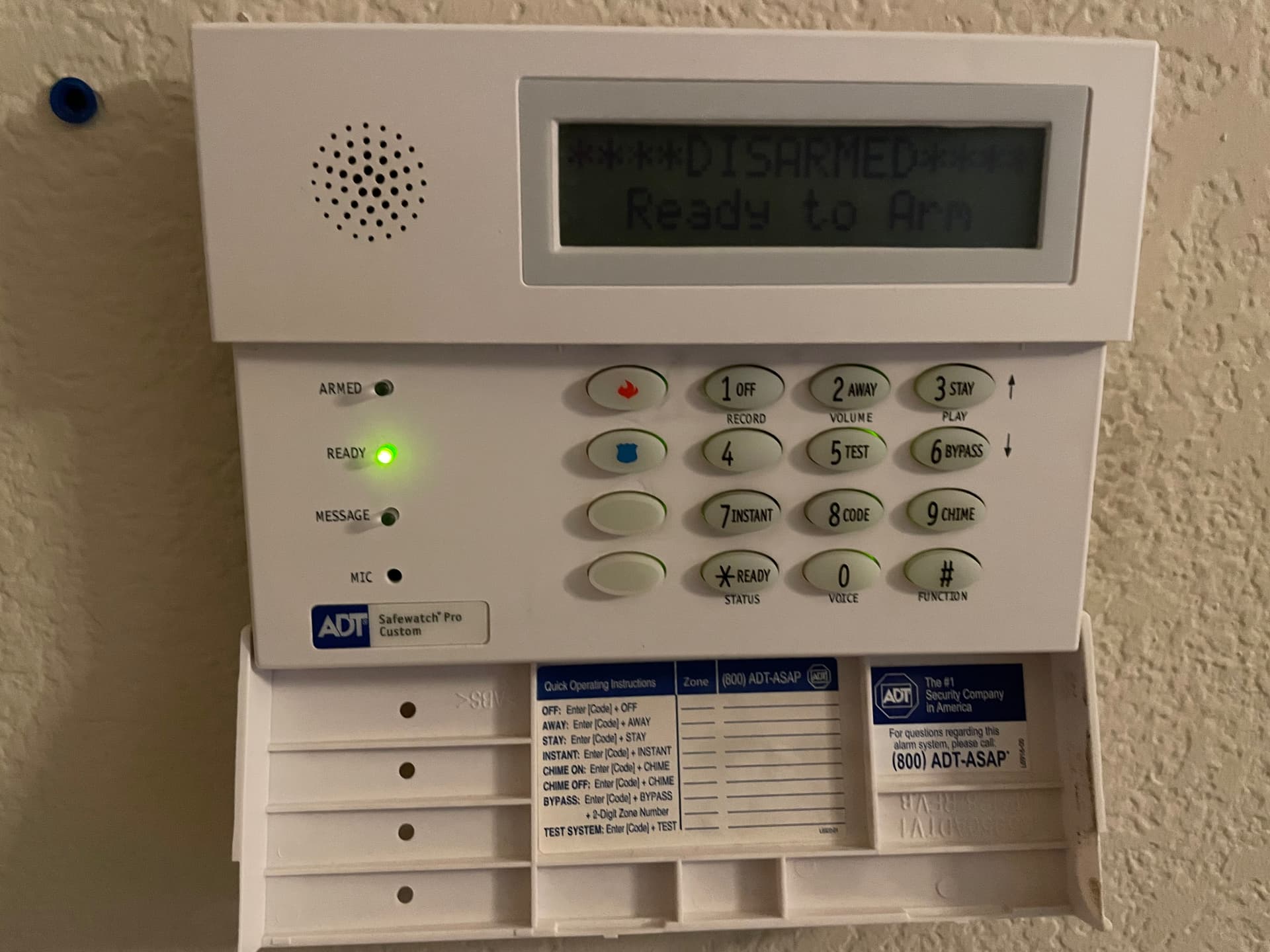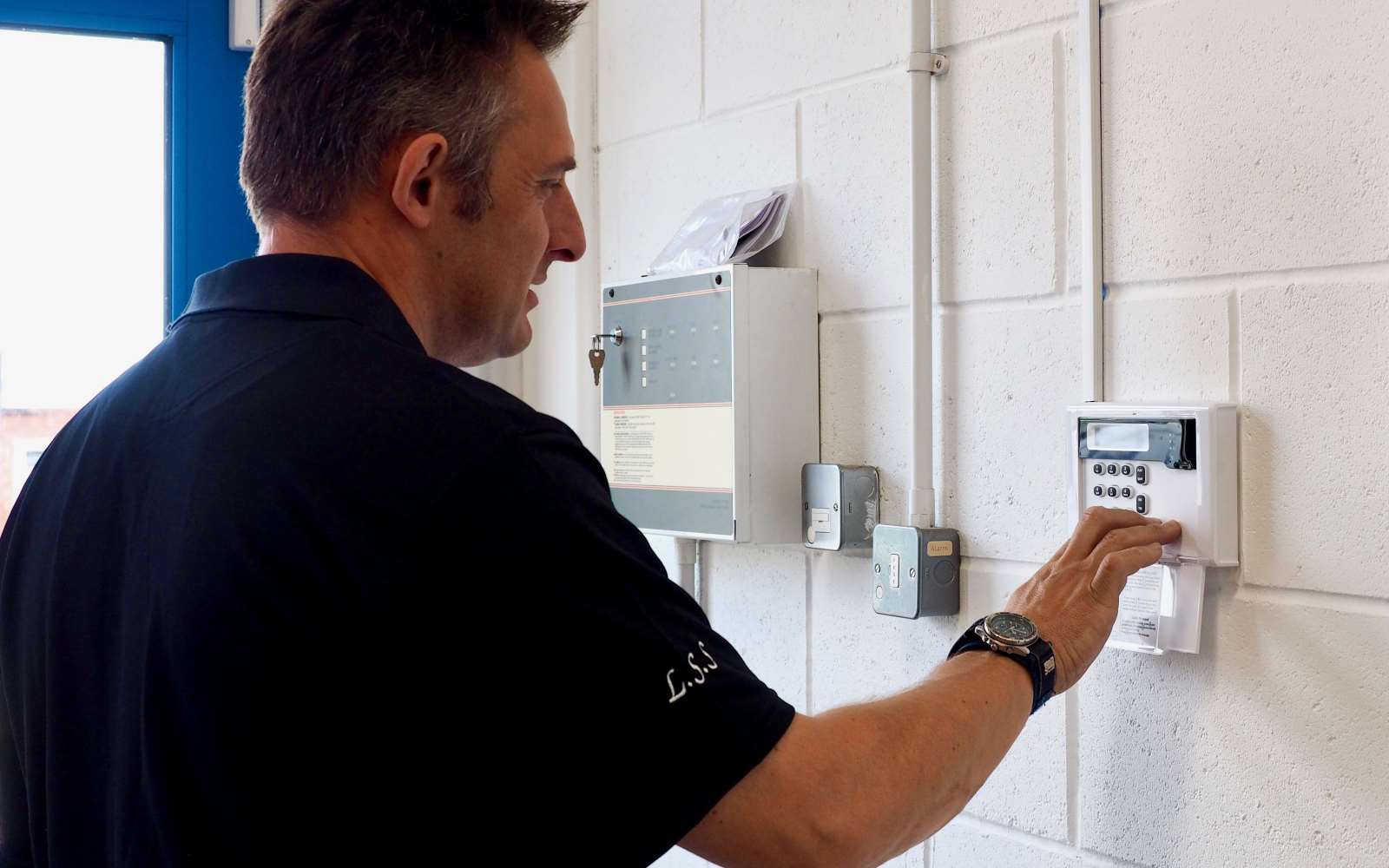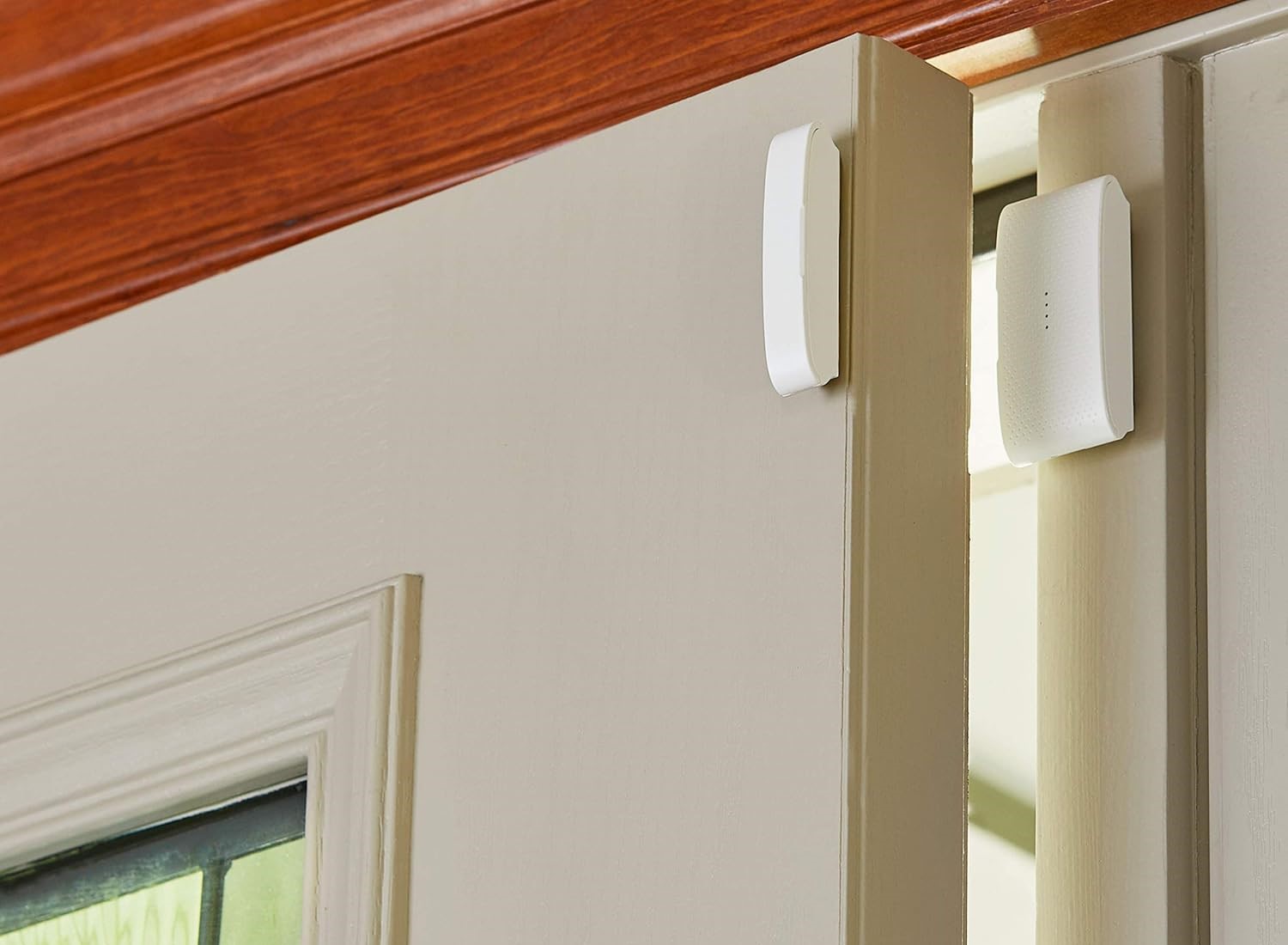Home>Home Security and Surveillance>Why Are Permits For Alarm Systems Required?
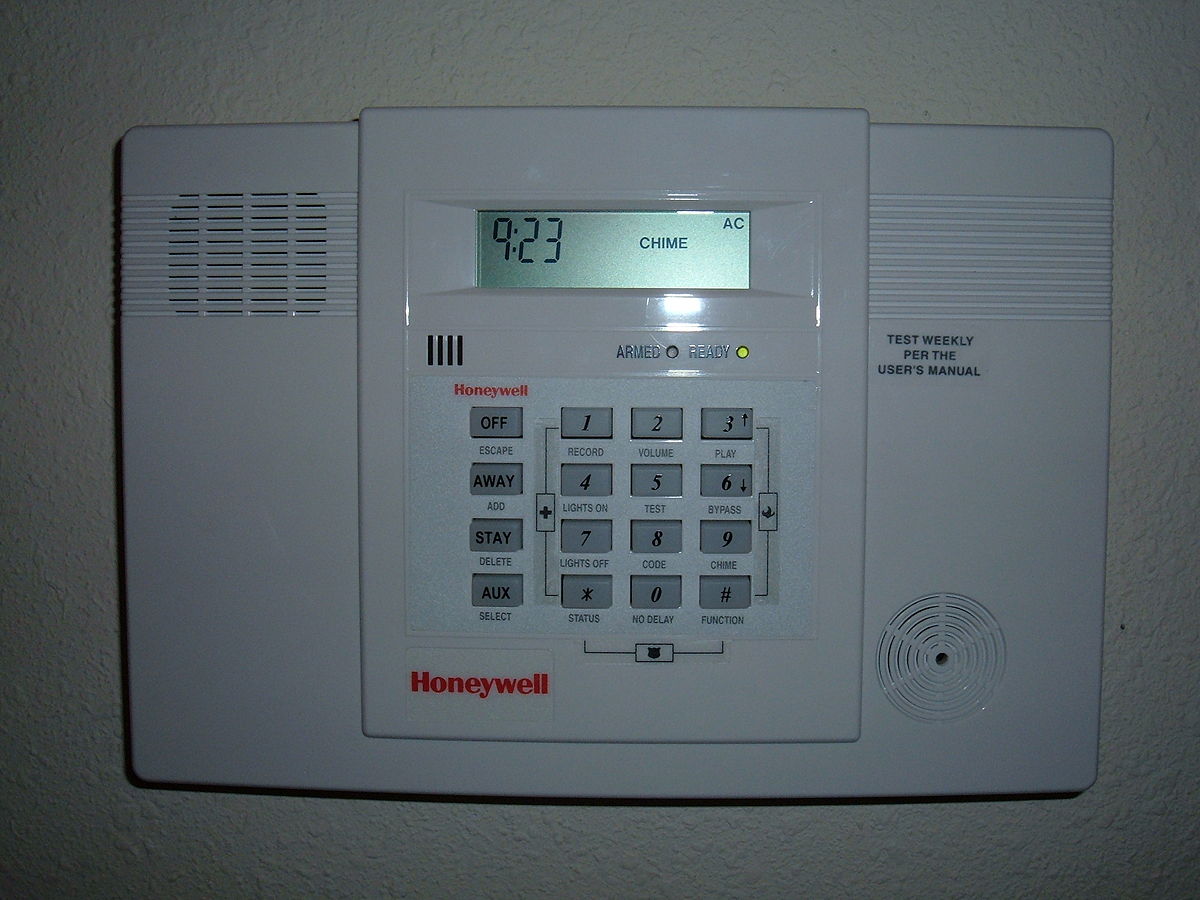

Home Security and Surveillance
Why Are Permits For Alarm Systems Required?
Modified: March 6, 2024
Learn why permits for alarm systems are required and how they enhance home security and surveillance. Discover the benefits of obtaining the necessary permits to maximize your safety.
(Many of the links in this article redirect to a specific reviewed product. Your purchase of these products through affiliate links helps to generate commission for Storables.com, at no extra cost. Learn more)
Introduction
In today’s world, it’s essential to prioritize the safety and security of our homes. With the increasing instances of burglary and theft, many homeowners are turning to alarm systems as an added layer of protection. However, what some homeowners may not be aware of is the requirement of obtaining a permit for their alarm systems. In this article, we will explore the reasons why permits for alarm systems are necessary, the benefits they provide, the application process, and the consequences of not complying with the regulations.
An alarm system permit is an official document issued by the local authorities that indicates that your alarm system is registered and in compliance with the law. It serves as a means of communication between homeowners and law enforcement agencies, enabling them to respond effectively in case of an alarm activation. While some homeowners may consider it an additional administrative hassle, permits for alarm systems play a vital role in ensuring the proper functioning and effectiveness of these security systems.
There are several reasons why permits for alarm systems are required. Firstly, they help to reduce false alarms. False alarms can be a significant burden for law enforcement agencies, as they waste valuable time and resources. With a permit in place, authorities can quickly determine if an alarm is legitimate or false, thereby minimizing unnecessary emergency response calls.
Additionally, alarm system permits help to promote accountability and responsibility among homeowners. By requiring permits, the authorities can keep track of the alarm system installations in their jurisdiction. This ensures that homeowners maintain and operate their alarm systems in compliance with local regulations, reducing the likelihood of negligence or misuse.
Moreover, permitting alarm systems fosters a collaborative relationship between homeowners and law enforcement agencies. It allows for better communication and coordination during emergencies, enabling a faster response time and enhancing overall community safety. This partnership between homeowners and authorities creates a sense of security and reassurance, knowing that help is readily available when needed.
In the following sections of this article, we will delve into the benefits of alarm system permits, explain the application process, discuss the associated costs and renewal procedures, and highlight the potential consequences of not obtaining a permit for your alarm system.
Continue reading to learn more about why permits for alarm systems are an essential requirement for the safety and security of your home.
Key Takeaways:
- Alarm system permits are like official permission slips for your home’s security. They help reduce false alarms, promote responsible usage, and enhance emergency response, making your community safer.
- Not getting a permit for your alarm system can lead to penalties, limited response from law enforcement, and even impact your insurance coverage. It’s important to comply with local regulations for a secure and protected home.
Read more: What Home Improvements Require A Permit?
What is an alarm system permit?
An alarm system permit is a document issued by the local authorities that grants permission for homeowners to install and operate an alarm system in their property. It serves as an official registration and acknowledgement of the presence of an alarm system within the jurisdiction.
The permit essentially acts as a means of communication between homeowners and law enforcement agencies. It provides crucial information about the alarm system, such as its location and contact details, enabling the authorities to respond effectively in case of an alarm activation. By obtaining a permit, homeowners are acknowledging their responsibility to comply with local regulations and to use their alarm systems responsibly.
Alarm system permits are typically issued by the local police department or the city’s alarm system unit. The process of obtaining a permit may vary depending on the jurisdiction, but it generally involves submitting an application form, providing relevant details about the alarm system, and paying a fee.
It is important to note that alarm system permits are often renewable on an annual basis. This ensures that the information on file remains accurate and up-to-date. Failure to renew the permit can result in penalties or the suspension of alarm system services.
Some jurisdictions may have specific requirements or guidelines for alarm system permits. These can include restrictions on the type of alarm system allowed, the positioning of alarms, and even requirements for alarm monitoring services. It is crucial for homeowners to familiarize themselves with their local regulations and follow them accordingly to avoid any potential issues.
Overall, an alarm system permit is a crucial document that establishes the legitimacy of your alarm system within the jurisdiction. It not only ensures compliance with local regulations but also facilitates effective communication between homeowners and law enforcement agencies. By obtaining a permit, homeowners contribute to the overall safety and security of their community.
Reasons for requiring permits for alarm systems
The requirement for permits for alarm systems is not arbitrary. It is based on various reasons that aim to ensure the optimal functioning of alarm systems and improve public safety. Let’s explore some of these reasons:
- Reduce false alarms: False alarms are a significant issue that can waste valuable time and resources for law enforcement agencies. Requiring permits for alarm systems helps to address this problem by ensuring that homeowners take necessary precautions to minimize false alarms. By making it mandatory to have a permit, authorities can hold homeowners accountable for maintaining their alarm systems properly, reducing accidental activations.
- Encourage responsible usage: Requiring permits for alarm systems promotes responsible usage among homeowners. It helps to educate homeowners about the proper operation of their alarm systems and emphasizes the importance of avoiding false alarms. By obtaining a permit, homeowners are more likely to understand the significance of maintaining and using their alarm systems responsibly, reducing the chances of unnecessary emergency response calls.
- Enhance emergency response: Alarm system permits improve the efficiency and effectiveness of emergency response. When an alarm is activated, the permit provides critical information to law enforcement agencies, such as the homeowner’s contact details and the location of the alarm system. This allows for quicker and more accurate dispatching of emergency personnel, increasing the chances of apprehending potential intruders and minimizing property damage.
- Promote community safety: Requiring permits for alarm systems fosters a sense of community safety and collaboration. It encourages homeowners to proactively engage with law enforcement agencies and establish open lines of communication. In turn, this partnership allows for better coordination during emergencies and facilitates the exchange of information that can help prevent crime in the neighborhood.
- Regulate alarm industry: Alarm system permits also play a role in regulating the alarm industry itself. By requiring permits, authorities can keep track of the number and types of alarm systems in their jurisdiction. This helps to ensure that alarm companies operate within legal guidelines and that the quality of alarm systems meets the necessary standards. It promotes accountability and professionalism within the industry, ultimately benefiting both homeowners and law enforcement.
By understanding these reasons, homeowners can appreciate the necessity of obtaining a permit for their alarm systems. It not only helps to minimize false alarms but also contributes to the overall safety and security of the community. Requiring permits promotes responsible usage and ensures that alarm systems are properly maintained and operated, making them more effective in protecting homes and deterring potential intruders.
Benefits of alarm system permits
Alarm system permits offer several benefits for both homeowners and law enforcement agencies. Let’s explore some of these benefits:
- Effective emergency response: One of the primary benefits of alarm system permits is that they enable faster and more accurate emergency response. When an alarm is triggered, law enforcement agencies can quickly access the permit information, which includes the homeowner’s contact details and the location of the alarm system. This facilitates a timely dispatch of emergency personnel, reducing response times and increasing the likelihood of apprehending intruders or mitigating potential threats.
- Reduced false alarms: False alarms can be a significant burden on law enforcement agencies, wasting time and resources. Alarm system permits help to minimize false alarms by encouraging homeowners to use their alarm systems responsibly. With the knowledge that their alarm systems are registered and monitored, homeowners are more likely to take precautionary measures and avoid accidental activations, reducing unnecessary emergency response calls.
- Community safety: Alarm system permits promote community safety by fostering a sense of collaboration between homeowners and law enforcement agencies. By requiring permits, authorities establish a line of communication with homeowners, allowing for better coordination during emergencies. It also encourages homeowners to be vigilant and proactive in reporting suspicious activities, contributing to overall crime prevention efforts in the neighborhood.
- Accountability and compliance: Obtaining a permit for an alarm system demonstrates the homeowner’s commitment to complying with local regulations. It ensures that the alarm system is installed, maintained, and operated according to the specified guidelines. By making permits mandatory, authorities can hold homeowners accountable for any violations or misuse of their alarm systems, promoting responsible usage and enhancing the overall effectiveness of the security measures.
- Professional alarm industry: Alarm system permits play a role in regulating the alarm industry itself. By requiring permits, authorities can monitor and evaluate alarm system companies to ensure that they meet the necessary standards. This promotes professionalism within the industry, encouraging alarm companies to provide high-quality products and services. Homeowners benefit from working with reputable alarm system providers who adhere to industry regulations and best practices.
Overall, alarm system permits provide tangible benefits that enhance the safety and security of both homeowners and the community. They facilitate efficient emergency responses, minimize false alarms, promote responsible usage, foster community collaboration, and regulate the alarm industry. By obtaining a permit for your alarm system, you contribute to a safer environment and increase the effectiveness of the security measures in place to protect your home.
When installing an alarm system, always check with your local authorities to see if permits are required. This can help you avoid potential fines and ensure that your system is in compliance with local regulations.
Application process for alarm system permits
Applying for an alarm system permit involves a straightforward process that varies depending on the jurisdiction. The following steps outline a typical application process:
- Research local regulations: Familiarize yourself with the specific alarm system permit requirements in your area. Consult with your local police department or alarm system unit to understand the necessary documents, fees, and any specific guidelines.
- Complete the application form: Obtain the alarm system permit application form from the appropriate authority. Fill out the form accurately, providing all the required information, such as your personal details, alarm system specifications, and emergency contact information.
- Provide supporting documentation: Depending on your jurisdiction, you may need to submit additional documents along with your application form. This can include proof of residence, proof of alarm system purchase or installation, and any required certifications or permits from alarm system providers.
- Pay the permit fee: Most alarm system permits require a fee, which can vary depending on the jurisdiction and the type of alarm system you have. Pay the fee as specified by the local authorities. This fee is often used to cover administrative costs associated with processing the permit.
- Submit your application: Once you have completed the application form and gathered all the necessary supporting documentation, submit your application to the designated authority. This can typically be done by visiting the local police department or alarm system unit in person, or through an online submission process if available.
- Wait for approval: After submitting your application, the authorities will review it to ensure that you have met all the requirements. The processing time may vary, but you can expect to receive a confirmation once your application is approved. This confirmation typically serves as your official alarm system permit.
It is important to note that alarm system permits often need to be renewed annually. As the expiration date approaches, you will be required to follow a similar process to renew your permit, including providing updated information and paying the renewal fee.
By following these steps and complying with local regulations, you can successfully obtain an alarm system permit for your home. Remember to keep a copy of your permit in a safe place and notify the authorities of any changes to your alarm system or contact information to ensure the accuracy of your permit.
Cost and renewal of alarm system permits
The cost and renewal process of alarm system permits can vary depending on the jurisdiction and the specific regulations in place. Here are some general considerations regarding the cost and renewal of alarm system permits:
Cost of alarm system permits:
The cost of alarm system permits can range depending on various factors, such as the type of alarm system, the location, and the issuing authority. Typically, there is an initial fee to obtain the permit, which covers administrative costs associated with processing the application. This fee can vary from a nominal amount to a more substantial fee, depending on the jurisdiction.
It is essential to research and understand the specific cost requirements in your area before applying for an alarm system permit. Contact your local police department or alarm system unit to inquire about the fee structures and any additional charges that may apply. By knowing the cost upfront, you can budget accordingly.
Renewal of alarm system permits:
Alarm system permits are often renewable on an annual basis. Renewal ensures that the information on record remains accurate and up-to-date. The renewal process typically involves submitting updated information and paying a renewal fee.
Before the expiration date of your current permit, you will receive a notification or renewal form from the issuing authority. This form will ask for updated information about your alarm system, such as any changes in contact details or any modifications to your alarm system setup. Fill out this form accurately and provide any requested supporting documentation.
Along with the updated information, you will be required to pay a renewal fee. The renewal fee may be the same as the initial permit fee or could be a reduced amount. The specific renewal fee and payment process will be outlined in the notification or renewal form you receive.
It is crucial to submit your renewal application and pay the fee on time to avoid any lapses in your alarm system permit. Failure to renew your permit promptly may result in penalties or the suspension of your alarm system services.
Remember to stay informed about the renewal dates and any changes in the renewal process by maintaining regular communication with the issuing authority. By adhering to the renewal process, you can ensure the continuous validity of your alarm system permit and the ongoing compliance with local regulations.
It is important to note that the cost and renewal process can vary significantly between jurisdictions. Therefore, it is essential to consult with your local authorities to obtain accurate and up-to-date information specific to your area.
Consequences of not getting a permit
Failing to obtain a permit for your alarm system can have several consequences, both legally and practically. Here are some potential outcomes of not obtaining a permit:
- Penalties and fines: Many jurisdictions impose penalties and fines for operating an alarm system without a permit. These penalties could be monetary fines that increase each time an alarm event occurs. Repeat offenders may face more severe consequences, including potential legal action or even the suspension of alarm system services.
- Limited or no response from law enforcement: Law enforcement agencies may treat unpermitted alarms differently than permitted alarms. Without a permit, authorities may prioritize responding to alarms with valid permits, potentially leading to delayed response times or no response at all. This jeopardizes the effectiveness of your alarm system as a security measure.
- False alarm fees: In many jurisdictions, homeowners who do not have a permit may be subject to additional fees for false alarms. Without a permit, false alarms may be considered more significant infractions, resulting in higher fees. These fees are meant to discourage false alarms and incentivize homeowners to obtain the necessary permits.
- Limited liability protection: Some homeowner’s insurance policies may offer reduced coverage or limited liability protection if an alarm system is not properly permitted. By not obtaining a permit, you may put yourself at a disadvantage in terms of insurance claims related to security breaches or damage resulting from a lack of response from law enforcement.
- Negative impact on emergency response: Operating an unpermitted alarm system can create confusion and inefficiencies during emergency response situations. Without accurate and up-to-date information on file, law enforcement may struggle to determine the legitimacy of alarm activations, leading to potential delays or inadequate responses during critical situations.
- Non-compliance with local regulations: Operating an alarm system without the required permit is a violation of local regulations. This can result in tarnished reputations, strained relationships with law enforcement agencies, and potential legal implications. Additionally, non-compliance may negatively impact your ability to sell your property in the future if prospective buyers require proof of a valid alarm system permit.
Overall, the consequences of not obtaining a permit for your alarm system are significant. It is essential to prioritize compliance with local regulations to ensure the optimal functioning and effectiveness of your security measures. By obtaining the necessary permit, you not only avoid potential penalties and fines but also contribute to a safer community and a more efficient emergency response system.
Conclusion
Permits for alarm systems are a crucial requirement for homeowners who value the safety and security of their homes. While the process of obtaining a permit may involve some administrative steps and fees, the benefits far outweigh any inconvenience. Alarm system permits serve as an important communication tool between homeowners and law enforcement agencies, ensuring effective emergency response and minimizing false alarms.
Through the application process for alarm system permits, homeowners are encouraged to educate themselves about the proper usage and maintenance of their alarm systems. This promotes responsible behavior and helps in creating a community environment that prioritizes safety and security. By obtaining a permit, homeowners not only comply with local regulations but also actively contribute to crime prevention efforts in their neighborhood.
Alarm system permits offer numerous benefits, including efficient emergency response, reduced false alarms, improved community safety, accountability, and regulation of the alarm industry. They also provide a systematic approach to address the increasing number of alarm systems, allowing authorities to better manage resources and ensure the quality and effectiveness of security measures.
It is important for homeowners to carefully navigate the application process for alarm system permits, ensuring they understand and adhere to local regulations. Additionally, staying informed about the renewal process is crucial to maintaining the validity of the permit and preserving ongoing compliance.
In conclusion, alarm system permits play a vital role in enhancing the safety and security of homes. They create a partnership between homeowners and law enforcement agencies, fostering an environment of collaboration and effective communication. Obtaining a permit demonstrates a commitment to responsible home security practices and contributes to the overall well-being of the community.
If you haven’t already, make sure to obtain a permit for your alarm system and enjoy the peace of mind that comes with knowing your home is protected by a recognized and regulated security measure. Stay safe!
Frequently Asked Questions about Why Are Permits For Alarm Systems Required?
Was this page helpful?
At Storables.com, we guarantee accurate and reliable information. Our content, validated by Expert Board Contributors, is crafted following stringent Editorial Policies. We're committed to providing you with well-researched, expert-backed insights for all your informational needs.


